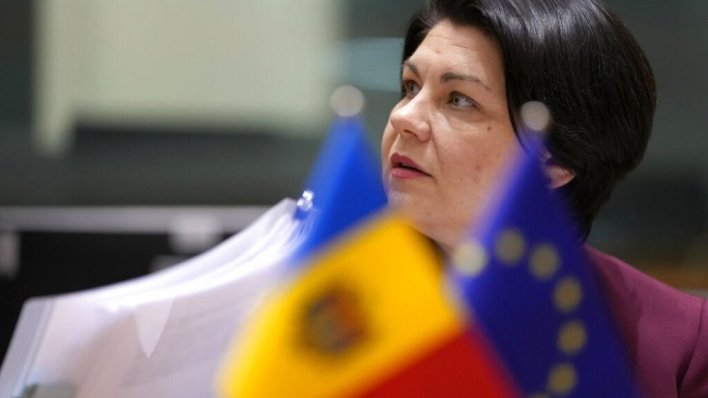Moldova Braces for Russia’s ‘Hybrid War’: Protests and Cyberattacks Ramp Up
Russia is trying to destabilize Moldova by sponsoring protests and conducting cyber attacks, the country’s prime minister told Euronews on Tuesday.
“We see elements of a hybrid war. For example, we see pro-Russian forces trying to politically destabilize the country through paid protests, which quickly subsided when oligarchs who fled Moldova were put on sanctions lists and their cash flows restricted,” said Natalia Gavrilița.
“We see cyber attacks. We had the largest cyberattacks in our country’s history in 2022, and we’re seeing bomb threats.
“Much of the situation in Moldova will depend on how the war in Ukraine develops. We see that the brave Ukrainians are very resilient and are fighting not only for the security of their country, but also for the security of Moldova and for the security of the republic, values that we as Europeans are committed to,” she added.
Gavrilița spoke to Euronews during a visit to Brussels to attend the seventh EU-Moldova Association Council, held just months after the country was granted EU candidate status alongside Ukraine.
She said the country’s security is very vulnerable to events in neighboring Ukraine, as the war is putting great pressure on Moldova’s economy, energy security and social stability.
Moldova is high on the list of vulnerable states because of Russia’s numerous opportunities to exploit its economic and energy dependency. Before the war, the small country imported all of its gas from Russia, but Gazprom has since sharply reduced supplies.
“We expected 5% growth in 2022 and instead saw a 5.5% contraction in economic growth. We have very high inflation and, for example, the gas tariff has been increased seven times, the electricity tariff three times,” Gavrilița told Euronews.
“And even though we are targeting welfare programs, the bills that people are seeing have increased dramatically,” she said, adding that wages have not been adjusted accordingly.
The EU Commission proposed €145 million in new funding just last week and said it would continue to support the country’s economy and energy security.
At the same time, the pro-Russian breakaway region of Transnistria remains a concern as the war is still ongoing.
The narrow strip of land, almost 200 kilometers long and 30 kilometers wide, lies between the Dniester River and Moldova’s eastern border with Ukraine. It seceded from Moldova in 1992, but is not recognized as a sovereign state by either the international community or Russia.
“We consider the situation in our separatist region of Transnistria to be fragile but stable,” the prime minister said.
Gavrilita also told Euronews that illegal migration is increasing via the Ukraine conflict as a transit route or Moldova as a transit country. Those numbers aren’t huge, but she stressed the importance of making sure they don’t grow and become a phenomenon.
Source: www.euronews.com
Don’t miss interesting posts on Famousbio
